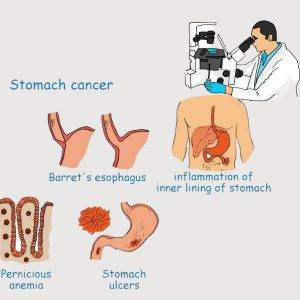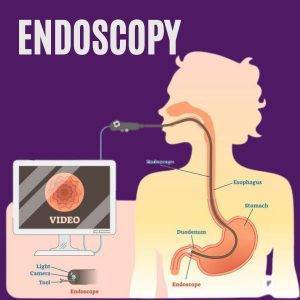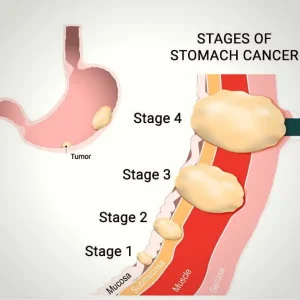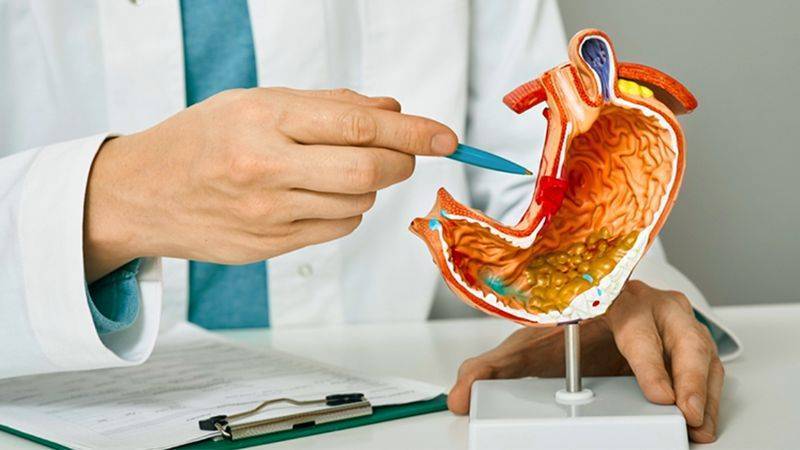“Be Proactive: Early Detection is Key to Fighting Stomach Cancer.”
Stomach cancer is one of the most common types of cancer worldwide, and early detection is key to successful treatment.
This article will discuss the various methods of early detection for stomach cancer, including physical exams, imaging tests, and endoscopies.
Symptoms of Stomach Cancer
Stomach cancer, also known as Gastric cancer, is a type of cancer that affects the lining of the stomach. Understanding the symptoms of stomach cancer is essential for recognizing the signs and seeking treatment as soon as possible.
Understanding the symptoms of stomach cancer is essential for recognizing the signs and seeking treatment as soon as possible.
The most common symptom of stomach cancer is abdominal pain. This pain may be localized to the stomach area or may radiate to other parts of the body.
Other symptoms may include nausea, vomiting, loss of appetite, weight loss, and fatigue. In some cases, stomach cancer may cause blood in the stool or black stools.
More symptoms of stomach cancer may include difficulty swallowing, a feeling of fullness after eating only a small amount of food, and heartburn.
In some cases, stomach cancer may cause anemia, which is a condition in which the body does not have enough healthy red blood cells.
If you experience any of these symptoms, it is important to seek medical attention as soon as possible.
Your doctor will perform a physical exam and may order tests such as a blood test, an endoscopy, or a biopsy to determine if you have stomach cancer.
Latest Advances in Stomach Cancer Diagnostics
Stomach cancer is a serious and potentially life-threatening condition that affects millions of people around the world. The most common diagnostic tool for stomach cancer is an Endoscopy. During this procedure, a thin, flexible tube with a camera is inserted into the stomach to look for any abnormalities.
The most common diagnostic tool for stomach cancer is an Endoscopy. During this procedure, a thin, flexible tube with a camera is inserted into the stomach to look for any abnormalities.
Endoscopies can detect tumors, polyps, and other signs of cancer. They can also be used to take biopsies, which can be analyzed for cancer cells.
In addition to endoscopies, imaging tests such as CT scans and MRI scans can be used to detect stomach cancer. These tests can help to identify tumors and other abnormalities in the stomach. They can also be used to monitor the progress of the disease.
Blood tests are also used to diagnose stomach cancer. These tests measure levels of certain proteins and hormones that can indicate the presence of cancer.
Genetic testing can also be used to detect stomach cancer. This type of testing looks for changes in the DNA that can indicate the presence of cancer.
Be aware of the latest advances in diagnostics and to talk to your doctor about any concerns you may have.
Early Detection Can Save Lives
Early detection is key to successful treatment and improved outcomes, and regular stomach cancer screenings can help to identify the disease in its earliest stages.  Stomach cancer is the fifth most common cancer worldwide, and it is estimated that over one million people are diagnosed with the disease each year.
Stomach cancer is the fifth most common cancer worldwide, and it is estimated that over one million people are diagnosed with the disease each year.
Unfortunately, the majority of cases are not detected until cancer has already spread to other parts of the body, making it more difficult to treat.
Studies have shown that patients who are diagnosed with early-stage stomach cancer have a five-year survival rate of up to 90%, compared to just 10-20% for those diagnosed in the later stages.
Early detection also allows for more treatment options, such as surgery, chemotherapy, and radiation, which can be more effective when the cancer is still localized.
Regular stomach cancer screenings can also help to reduce the risk of developing the disease in the first place to identify precancerous lesions, which can then be monitored or treated.
Additionally, early detection can help to reduce the need for costly follow-up treatments, such as chemotherapy and radiation.
Q&A
1. What are the symptoms of stomach cancer?
Early symptoms of stomach cancer can include abdominal pain, nausea, loss of appetite, feeling full after eating only a small amount of food, and unexplained weight loss.
2. What tests can be used to detect stomach cancer?
Tests that can be used to detect stomach cancer include endoscopy, imaging tests such as CT scans and MRI scans, and blood tests.
3. What lifestyle changes can help reduce the risk of developing stomach cancer?
Making healthy lifestyle choices such as eating a balanced diet, exercising regularly, avoiding smoking and excessive alcohol consumption, and maintaining a healthy weight can help reduce the risk of developing stomach cancer.






